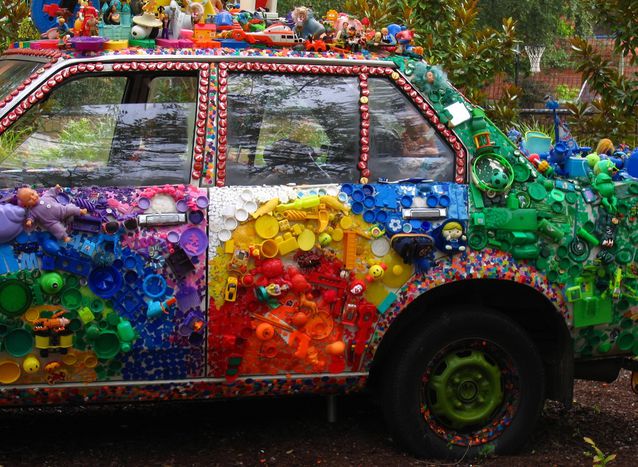
Environment: Brussels counter attacks!
Published on
The intention is clear: « 2 times 20 in 2020 ». This is the ambition of “Energy-climate package” introduced last January 23rd by the European Commission. Concretely, it deals with reducing CO2 discharges within the EU by 20% and, at the same time, increasing green energy consumption by 2020.
Even though the European History is paved with initiatives in favour of environmental protection, this “Energy-climate package” seems to be a turning point in this green collective consciousness.
“…environment accounts for real European challenge” explains Daniel Cohn-Bendit, European MP, vice president of the Green/Alliance libre Européenne to the French newspaper Les Echos (March 27, 2008). “Even if a nationalist temptation still exists as soon as measures from Brussels don’t fit perfectly the national interests. A whole range of steps have however been taken in spite of problems raised by the governments, they were fair, such as the directive on migratory bird protection since 1979, then on the 2000 Natura directive, like the adoption of the « polluting agent = payer » principal and the precaution principal…”
These ambitious resolutions have for target to ensure the EU energetic independence especially towards its Russians, Iranian and Saudi suppliers of black gold, but can as well open the doors of the green new technologies to the Old Continent. “If the Union wants to organize and globalize the climate debate, it has to become the leader through its decisions and actions” continues Daniel Cohn-Bendit. “It is very important that the EU could become the green technology champion, which would be extremely profitable for our economy.”
Green-requirement?
First step: to reform the EU CO2 discharge exchange quota system. The European States could finance to support green energies or to support the old infrastructure renovation. After 2012 and the end of the Kyoto treaty, the greenhouse gas quota attribution by the EU Commission will get stricter. The aim is set to minus 21% for the discharges of industries submitted to those quotas by 2020 compared to the 2005 quotas. Second step: multiplying by two the investments in the green energy sector that will satisfy 20% of the EU energy needs in 2020, for only 8,5% today. This challenge requires a huge effort from the member states in order to diversify their green energy sources: 70% of the green energy comes now from hydroelectricity while there are also sun power, wind-bornes or biomass. « There is a strong consensus in the European society to go towards these green energies that are also in the future the warranty of our geopolitical independence towards fossil energy supplier” explains Claude Turnes, in charge of the green energy project for the European Parliament to the newspaper Les Echos (March 27th, 2007). “Today five countries have built economical success stories from green energies, Germany, Spain, Sweden, Austria and Denmark. They have set an example and proven that their development can bring to Europe a new industrial leadership.” The agricultural sector was not forgotten. Started in 2003, a deep revision of the Common Agricultural Policy (CAP). The Commission has initiated a reform of the financial allocation to the farmers in order to stop pushing them towards overproduction. A new criteria named “green-requirement” forces for now on farmers to respect environment protection requirements in order to benefit from market supports for fear of sanctions.
Will Europe finally embody its part of green warrior? Let see in 2020!
Picture copyright : Andy Bahn/SXC
Firms go green too
 All across the European union, individual initiatives are blooming. Driven by their consumers’ will, these eco-friendly resolutions aren’t of course taken by altruism, but shouldn’t we say that only results count? Here are a few examples:
All across the European union, individual initiatives are blooming. Driven by their consumers’ will, these eco-friendly resolutions aren’t of course taken by altruism, but shouldn’t we say that only results count? Here are a few examples:
-Johara BOUKABOUS



